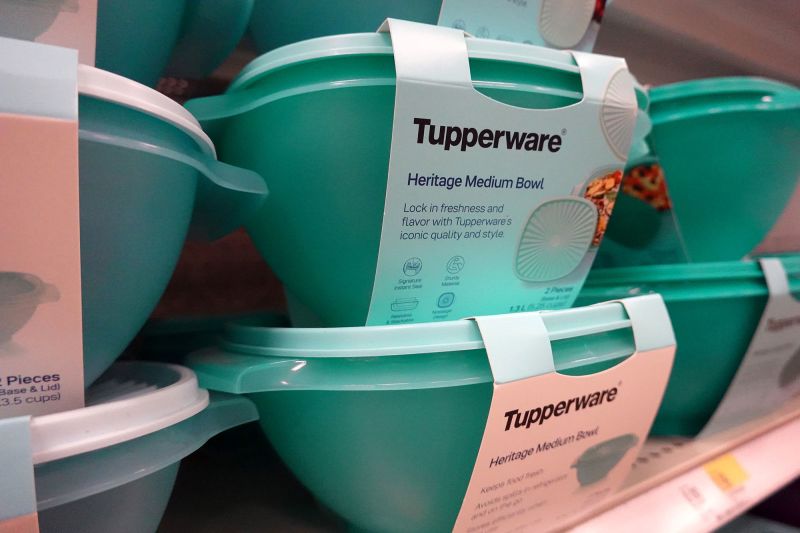
Tupperware Files for Bankruptcy After Years of Decline in Popularity
Tupperware, the iconic brand known for its innovative plastic food storage containers, has officially filed for bankruptcy, marking the end of an era for a company that once dominated kitchens around the world. After struggling with financial difficulties for years, Tupperware’s Chapter 11 bankruptcy filing was made in a Delaware court on September 17, 2024, as the company continues to face a steep decline in sales and relevance.
The 78-year-old company, which started in 1946, had revolutionized food storage with its airtight containers and found success through its unique direct-sales model known as "Tupperware parties." These gatherings empowered women to join the sales force, creating a sense of community and offering a flexible way to earn money. The business thrived for decades on this model, similar to companies like Avon, where products were demonstrated in home settings.
Also Read:- UEFA's High-Level Meeting Sets the Stage for Future European Football Tournaments
- Celtic Dominates Slovan Bratislava in a 5-Goal Champions League Opener
However, as consumer habits changed and eco-conscious buyers moved away from plastic products, Tupperware began to lose its grip on the market. Competition from other brands, coupled with a shift toward digital and retail shopping experiences, diminished the company’s appeal, especially among younger generations. Although it began selling its products in major retailers like Target in 2022, it wasn’t enough to reverse its financial troubles.
In recent years, Tupperware has experienced severe financial setbacks, including a significant drop in its stock price, which fell to just 51 cents per share— a dramatic 74.5% decrease in value over the past year alone. Despite efforts to restructure and reduce debt, including securing millions in financing and cutting operating costs, the brand could not regain its footing. Its only U.S. manufacturing plant in South Carolina was shut down earlier this year, leading to layoffs and further compounding the company’s struggles.
The current bankruptcy process will allow Tupperware to continue operations temporarily, while it seeks court approval to restructure its debts. CEO Laurie Ann Goldman emphasized that the move could provide the flexibility needed for Tupperware to explore strategic alternatives, such as transitioning to a more digitally focused, technology-driven business model.
Yet, finding a buyer or making a comeback remains uncertain. Experts like Susannah Streeter of Hargreaves Lansdown noted that revitalizing a brand that has lost favor with eco-conscious consumers will be a significant challenge, as plastic continues to be a less desirable option in today’s market. While Tupperware will still be remembered as a household name that once empowered women and changed food storage habits globally, its future looks increasingly precarious.
In the end, Tupperware’s bankruptcy filing symbolizes the struggles many legacy brands face in adapting to modern consumer preferences and technological shifts. The "party" that once defined the brand’s success may indeed be over.
Read More:

0 Comments